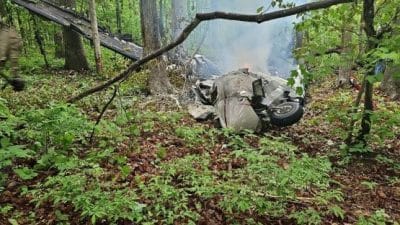
The New START Treaty, signed by the United States and Russia in April, renews and makes major improvements in on-site inspections. This is one of the most important reasons why New START has the overwhelming support of America’s national security leadership, including Defense Secretary Robert Gates, Joint Chiefs of Staff Chairman Mike Mullen, six former secretaries of state, and seven former U.S. strategic commanders.
These national security professionals all see this issue in context. During the Reagan Administration, U.S. negotiators were committed to securing on-site inspections of the Russian nuclear arsenal. As the Reagan team saw it, on-site inspections were an absolute prerequisite for reducing the deadly and expensive stockpiles that both sides had acquired. Without inspections, there could never be absolute confidence, and both sides would hedge their bets, under-cutting any progress that might be made. The President himself summed up the issue with the now famous phrase, “trust, but verify.”
After countless hours of negotiations, the Russians finally agreed. The first U.S. on-site inspection of Soviet nuclear-armed missiles took place 22 years ago, in July 1988. While previous treaties had relied upon satellites, the new gold standard, established by the Reagan negotiators, was boots-on-the-ground intrusive inspections. Satellites, valuable as they are, cannot look under roofs or inside missiles like human inspectors can. And the resulting intelligence has been of unquestionable benefit to
U.S. national security.
But today, politics is threatening those gains. If the Senate drags its feet on START and doesn’t complete work on the treaty by year’s end, the best case scenario will be an indeterminate delay in America’s ability to monitor Russia’s arsenal and the worst case scenario will be the loss of on-site inspections altogether. Both of these outcomes would represent an irresponsible and dangerous failure to act in the national security interest.
As General Kevin Chilton, U.S. Strategic Forces commander testified in June, without renewed verification “we would rapidly lose insight into Russian strategic nuclear force developments and activities, and our force modernization planning and hedging strategy would be more complex and more costly.”
The Senate has done their due diligence. They’ve spent six months hearing testimony on the treaty. They have heard from Secretary Gates, from Chairman of the Joint Chiefs, Admiral Mullen, from General Chilton, and from a who’s who of Republican and Democratic officials from the past seven administrations, all of whom have testified that the New START Treaty makes the U.S. safer and advances our national security objectives. While various concerns have been raised, each and every one has been persuasively addressed by our military leadership. Not surprisingly, at the conclusion of the hearings the Senate Foreign Relations Committee voted 14 to 4 in favor of the treaty.
At this point there is simply no good reason to delay a full vote on ratification.
Ever since the Reagan administration, on-site inspections have paved the way for steady reductions in the nuclear threat, for improved planning on the part of the U.S. military, and for better relations with Russia. All of these outcomes are squarely in our national security interest. And every arms reduction treaty since the Reagan era has won overwhelming bipartisan support in the US Senate. New START should be no different. This is a nonpartisan treaty.
The Senate should ratify the New START and build on the pattern of success that was begun more than twenty years ago.
John Castellaw retired as a lieutenant general after a 36-year career in the United States Marine Corps and was a former Chief of Staff for USCENTCOM. He is a member for the Consensus for American Security (www.securityconsensus.org).










